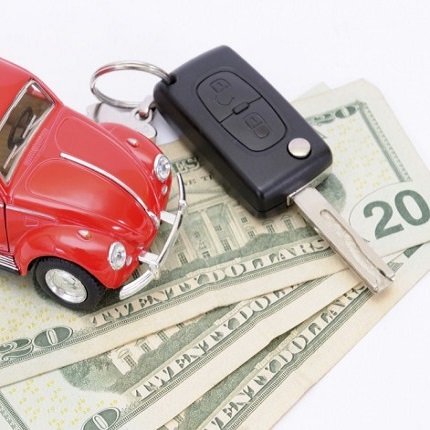Three Financial Steps To Take After A Natural Disaster
 Hurricanes have a way of reminding people that we are all potentially one natural disasteraway from finding ourselves in big trouble.
Hurricanes have a way of reminding people that we are all potentially one natural disasteraway from finding ourselves in big trouble.
Hurricane Harvey obviously got everyone’s attention when it stormed onto the Texan shores on August 26, devastating in particular the city of Rockport, taking out power lines in communities such as Corpus Christi and Edna and flooding much of Houston.
Thousands of people, as you likely know, have been rendered homeless. Many people were only able to escape flooding with the clothes on their backs and their wallets and cellphones; some survivors likely only have their wet clothes. For those who don’t have flood insurance, and reports suggest most Houston residents don’t have it, it’s easy to imagine that tens of thousands of people may end up having to start completely over.
In other words, putting your financial life back in order may take some time. A lot of time. But if you live in southeastern Texas, or if you’ve recently been on the receiving end of any natural disaster, some of what you’ll want to try and do includes the following.
Contact Your Insurance Company
This one’s a given. And while nobody’s suggesting you call while you’re in your house, hunkered down while a hurricane is ripping through your neighborhood, you do want to consider when exactly the best time to contact them is, based on the amount of damage to your house.
“Some states have a statute of limitations on a homeowners’ insurance up to six years,” says Joe DeLuca, an insurance executive at Holmes Murphy & Associates, an insurance agency headquartered out of West Des Moines, Iowa. “Still, ideally, you would file a claim as soon as possible, after the disaster is over, which is in everyone’s best interest. You do have the duty to protect your home from further damage when possible. When it comes to a catastrophic claim such as Harvey, you are best-suited to get as far away from the property as possible and let nature run its course. The most important thing is to protect yourself and protect your family.”
“And when you do take a look at the destruction to your belongings, you won’t want to rush the insurance claims process, even though you’ll likely want to get it past you,” says Andrew Anable, a registered investment advisor in Corona, California and who evacuated his own home due to wildfires. “Damage from things like flooding sometimes doesn’t materialize for months after the actual flood, so be very careful if you’re being asked to sign off on a final insurance settlement early on in the claims process.”
Contact The Government
There are numerous government websites that can offer a lifeline to anyone who has just been through a natural disaster.
- Do you need general financial assistance? The Federal Emergency Management Agency Individuals and Households Program offers money for necessary expenses and serious needs that aren’t related to housing. If you need money for medical expenses, child care, transportation or, grim as it sounds, funeral costs for a loved one, then you may want to visit DisasterAssistance.gov, where you can type in your address and see if you’re eligible for any type of financial assistance.
- Do you have flood insurance? You’ll want to visit this webpage offered by FEMA to file a claim with the National Flood Insurance Program.
- Are you a college student with loans impacted by the storm? The U.S. Department of Education has a Web page set up that may answer a lot of your questions.
- Concerned about your estimated tax payments? No need to call anyone or go to a website. For those who are self-employed or own small businesses, you may be interested to know that the IRS has said that it will grant automatic extensions (until Jan. 31, 2018) to individuals and businesses that have taxes that were due between Aug. 23 and January 2018.
Contact Your Creditors
At some point, you’ll want to contact your creditors and explain paying your bill may take some time. Fortunately, your credit card company or whomever you’re contacting is probably way ahead of you.
“Most reputable banks and lenders already have a hardship or natural disaster plan in place that they can add to your account which will allow you to go without payment without it affecting your credit report for a few months,” says Ronda Brunson, a certified financial educator, licensed credit counselor and credit coach based out of Baltimore. “Each will have different policies, so take detailed notes as to who you are speaking with and what they are saying,”
Michael Chadwick, a certified financial planner from Unionville, Connecticut agrees: ” I had a number of clients who experienced Hurricane Katrina in 2005. Most mortgage companies will forgive mortgage payments for some time in areas of natural disasters. And try not to panic when you’re making financial decisions in the aftermath of a natural disaster, since that can just cause you to make a rushed decision and then possibly cause a bad situation to become worse. Speaking for all financial advisors and professionals who may be in the position to help you. The first step is to not act emotionally. As long as you’re safe, we’ll figure out the logistics of your possessions later on.”
Source: U.S. News & World Report

